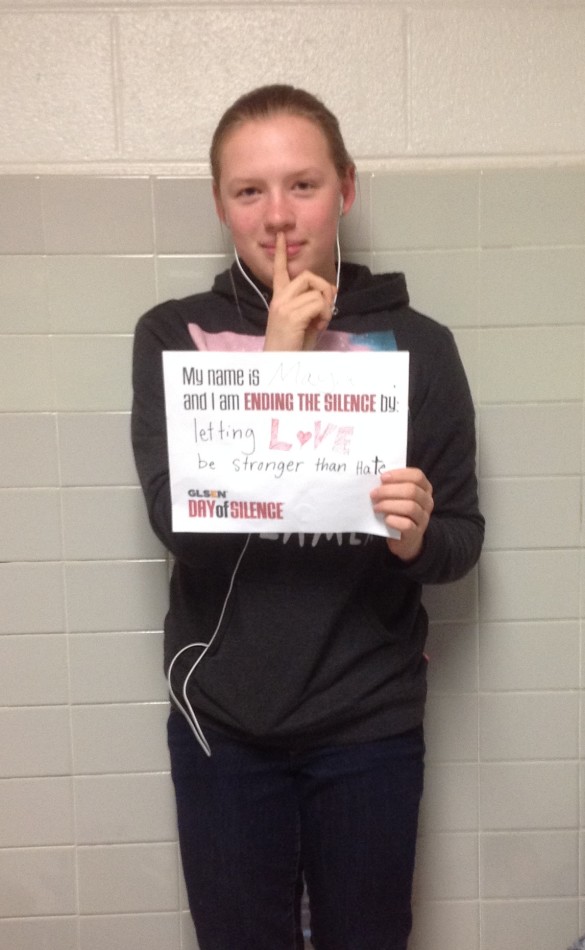GSA’s Day of Silence raises awareness of LGBT+ bullying
Sophomore Max Pabilonia holds a sign explaining Jefferson’s Day of Silence on April 11.
April 12, 2014
On the morning of April 11, many students solemnly and silently filed into school, despite the excitement and anticipation of spring break. Some walked with tape across their mouths, and others carried signs reading “Day of Silence,” or “Stomp out hate.” Students choosing to participate in the silent protest against bullying of lesbian, gay, bisexual, transgender, or questioning people (LGBT+) uttered no words throughout the day, only breaking the silence during the Gay-Straight Alliance (GSA)’s eighth period party.
GSA held the event in hopes of bringing light on the bullying issue for many students who categorize themselves as LGBT+. According to the official event page, LGBT+ students are up to five times more likely to commit suicide, primarily because of harassment and bullying from their peers.
“A lot of people misinterpret it as a stupid movement that doesn’t do anything, but people don’t realize that it is a memorial for those who have been silenced by the oppression of peers, parents and friends.” junior Andrea Donte-Perez, the president of GSA, said.
However, as students participated in the movement throughout the day, the true challenge of staying silent for all class periods quickly became apparent to many.
“Day of Silence is a personal movement that makes you realize what it is like to be totally insignificant,” junior Prashanth Panicker, a participant in GSA’s Day of Silence, said.
In order to relieve the issue of explaining the movement while staying silent, GSA reminded all of the event participants to bring a miniature whiteboard to write on. The club also distributed signs to students to explain the details of the Day of Silence and remind students of the legitimacy and urgency of the problem of LGBT+ bullying.
“The movement is more important at smaller, more conservative schools because there’s more bullying there, but it is still important because even if you don’t see it in our hallways that doesn’t mean it doesn’t happen and students need to realize that,” senior Sarah Brooks, the vice president of GSA, said.







Keith Pullman • Apr 15, 2014 at 7:45 am
This is so good to see. GSAs are very important, and I hope this GSA is or will be inclusive, accepting all whose gender identity, sexual orientation, relationship orientation, or existing relationship (or that of their parents) makes them a target for discrimination or bullying. Think polyamory, for example.